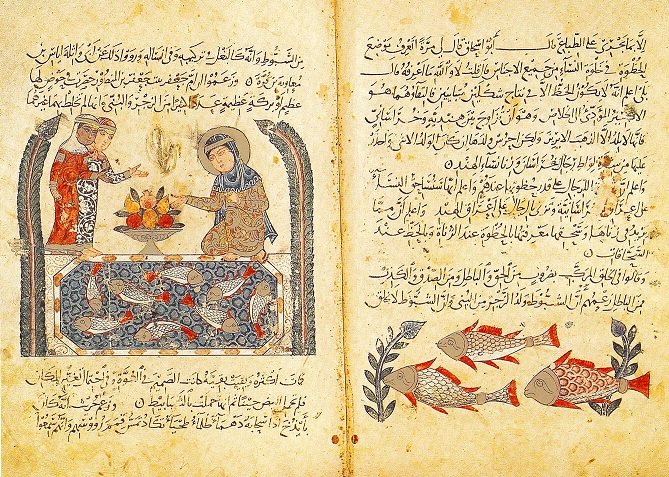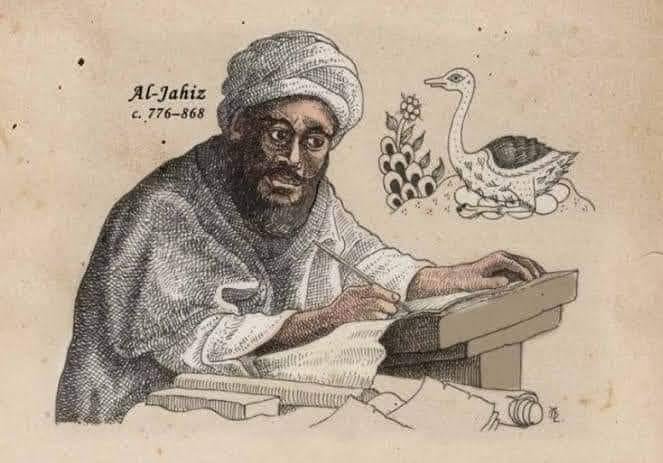
Al-Jahiz made significant contributions to literature, zoology, theology, philosophy, and social sciences, leaving behind a legacy that influenced both Islamic and Western scholarship.
Contributions to Literature and Science
1. The Book of Animals (Kitab al-Hayawan)
One of Al-Jahiz’s most famous works, Kitab al-Hayawan (The Book of Animals), is a seven-volume encyclopedia on zoology that provides:
- Descriptions of various animals, including their behaviors, adaptations, and environments.
- Theories on evolution: He suggested that animals evolve based on environmental factors, competition, and survival, foreshadowing Darwin’s theory of natural selection.
- Early observations on food chains, noting that stronger animals prey on weaker ones, affecting ecosystems.
This work demonstrated Al-Jahiz’s keen observational skills and scientific curiosity, making him one of the earliest thinkers to discuss evolutionary ideas.

2. The Book of Misers (Kitab al-Bukhala)
This humorous and satirical book examines human behavior, particularly greed and stinginess. Through witty stories, Al-Jahiz criticized social and economic issues in his society, making it one of the finest examples of Arabic prose literature.
3. Contributions to Islamic Theology
Al-Jahiz was influenced by the Mu’tazilite school of thought, which emphasized rationalism and free will in Islamic theology. His works explored:
- The relationship between reason and faith
- The nature of God and divine justice
- The role of language in religious understanding
He often debated religious topics, arguing for the use of logic and reason in understanding Islam.

Death and Legacy
Al-Jahiz is believed to have died around 868–869 CE in Basra. According to legend, he was crushed under a pile of books in his library, although historical sources do not confirm this story.
His legacy lives on through his literary and scientific contributions, which continue to be studied and admired. His works provide insight into early Arabic literature, philosophy, and scientific thought, making him one of the most influential Muslim intellectuals of all time.

Conclusion
Al-Jahiz was far ahead of his time, pioneering Arabic prose, evolutionary ideas, and social satire. His ability to blend science, philosophy, and humor made his writings timeless. His contributions not only enriched Islamic civilization but also laid the groundwork for future scientific and literary advancements.


